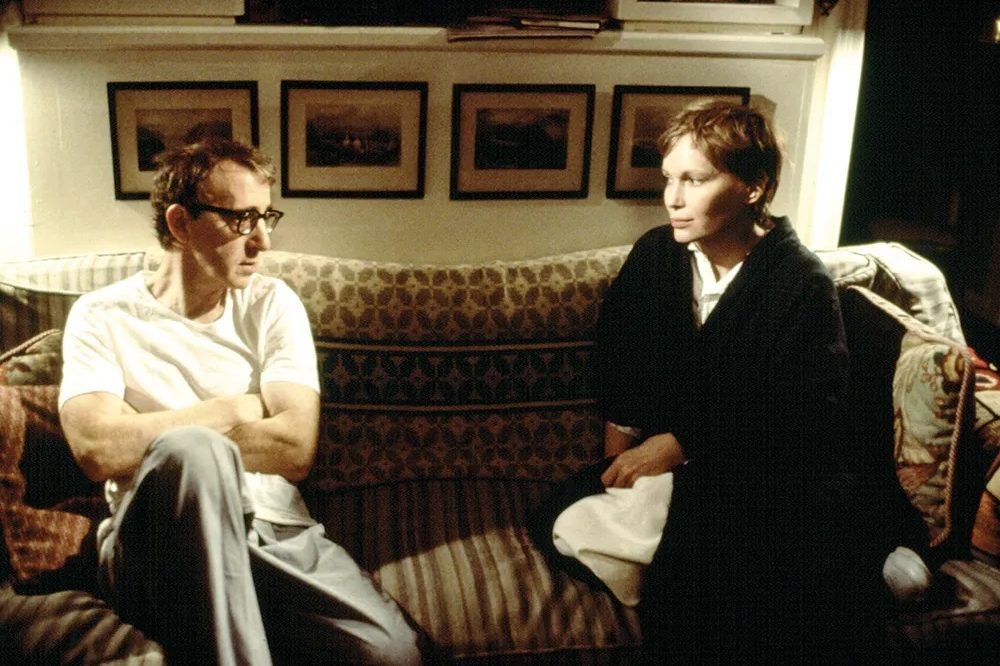Sexual intercourse, Philip Larkin famously wrote, began in 1963. And listening to contemporary commentators, you’d think that it came to an end in 2017 with the birth of the #MeToo movement. For these voices of doom, the end of the erotic is nigh; Britain is on the brink of sexual apocalypse.
The recent news that Netflix has banned flirtation from film sets — along with lingering hugs, requests for phone numbers and extensive touching — is for these commentators just the latest example of #MeToo sexual correctness gone mad. They fear we are witnessing the making of a bland new world where the rules and regulations governing social relations between the sexes will become so oppressive that the very sexiness of sex itself will be snuffed out.
I understand and sympathise with the prophets of doom because, until recently, I was one of them. Men like me — old-fashioned romantics who enjoyed flirtation and the art of seduction (conducted, of course, with old-world courtesy and consideration) — were finished. In a world where flirtation is forbidden and where to invite a work colleague for a cocktail is now condemned as coercion by other means, I was a dodo. As Sarah Vine put it recently: ‘Such men are becoming increasingly unacceptable in this #MeToo world of ours. So vehement is the backlash against anything resembling traditional masculinity, it’s hard to see a future for them.’
Yes, I had seen that future and it was sexless. It was time to bin my boxes of Viagra, chuck out the multi-coloured condoms, hang up my handcuffs and bid a tearful farewell to my old faithful friend Mr Penis Ring. The game was up and the good times were over; the warriors of the #MeToo movement had won the battle for hearts, minds and genitalia.
But then I began to think about the Netflix ban on looking at work colleagues for more than five seconds — and I suddenly realised that you can wink and smile at someone in less than five seconds. Putting a time limit on looking doesn’t end flirtation; on the contrary it compresses it into a supercharged sexual moment. The fleeting glance is always more suggestive — and welcome — than the fixated gaze. So maybe we’ve got it all wrong; maybe the #MeToo movement will actually be the saviour of sex. Why? Because in a world where flirtation is banned, sex regains its exciting edge; its frisson of the forbidden. Put simply: repression is the Viagra our bored, burnt-out, freewheeling, anything-goes, sex-fatigued culture needs to get its mojo working again.
For the past four decades we have been conned by the liberal establishment of writers, psychoanalysts and sex therapists into thinking that repression is the enemy of the erotic. If you want to see just how untrue that is, look at the platonic affair of Celia Johnson and Trevor Howard’s characters in David Lean’s 1945 masterpiece Brief Encounter. The only thing naked in that film is the raw and repressed desire they have for each other. Or to put it another way: repression in the 1940s gave us Elizabeth Taylor and Ava Gardner; liberation in the Noughties gave us Kim Kardashian and Katie Price.
Liberal tolerance and sexual pluralism are great in theory; in practice they’re more problematic. How can you walk on the wild side when all is permissible? Tolerance can take out the grit and guts of sex as much as intolerance.
The sexual revolution of the 1970s was the best and worst thing that ever happened to sex. Back then, sexual radicals assumed that if we defied the repressive moral commandments of what they called the ‘Western Judeo-Christian tradition’ and trashed the taboos of bourgeois society, then we’d all be freer and happier when it came to sex; and happy sex meant happy people.
But the intoxication of freedom and experimentation inevitably wears off. The sexual permissiveness and ‘free love’ that began in the 1960s ended not in a better world, but in the dead-end decadence of the 1970s: glam rock, gender bending and breaking every sexual taboo in the book.
And that grew boring too. People wanted rules and restrictions. Novelty always leads back to normality. Just look at the sexual trajectory of David Bowie’s life: Mr Gender-Bending-Bisexual himself ended up a happily married hetero. And so did Lou Reed, the man who invited us all to take a walk on that wild side.
People who worry the #MeToo sex of the future will be bland and boring have forgotten just how bland and boring sex had become even before the birth of the new rules. At the time, the feminist maverick Camille Paglia described the period immediately preceding #MeToo as an age ‘of sexual boredom and inertia, complaint and dissatisfaction, which is one of the main reasons young men have gone over to pornography’.
And look at how respectable middle-class society turned to S&M — at least the fantasy of it — to titillate their jaded sexual palates. How else can you explain the whole Fifty Shades of Grey phenomenon? After three films and more than 125 million copies sold worldwide, S&M is now about as transgressive as a vicar’s tea party.
But that could change, thanks to the #MeToo movement. Not long ago a New York Times headline asked, ‘How Does Submissive Sex Work in the Age of #MeToo?’ Actually, I would say, it’s going to work pretty damn well! The author of the piece, Hayley Phelan, wondered if her joy in being dominated by men made her ‘a traitor to #MeToo and what it stands for’. Of course it does; but how exciting is that! The bedroom is where all the messy contradictions of our lives can safely be played out.
And because of the #MeToo movement, sex will be pushed out of the public realm and put back into the bedroom where it belongs. Of course a lot of #MeToo rules are silly and excessive — but so are the freedoms offered by enlightened liberal orthodoxies. It’s a question of getting the balance right. I’m optimistic that we’re heading for a new golden age where sex has regained its sexiness. It’s going to be a dirty, thrilling and fun ride. Now where did I put those cuffs?

























